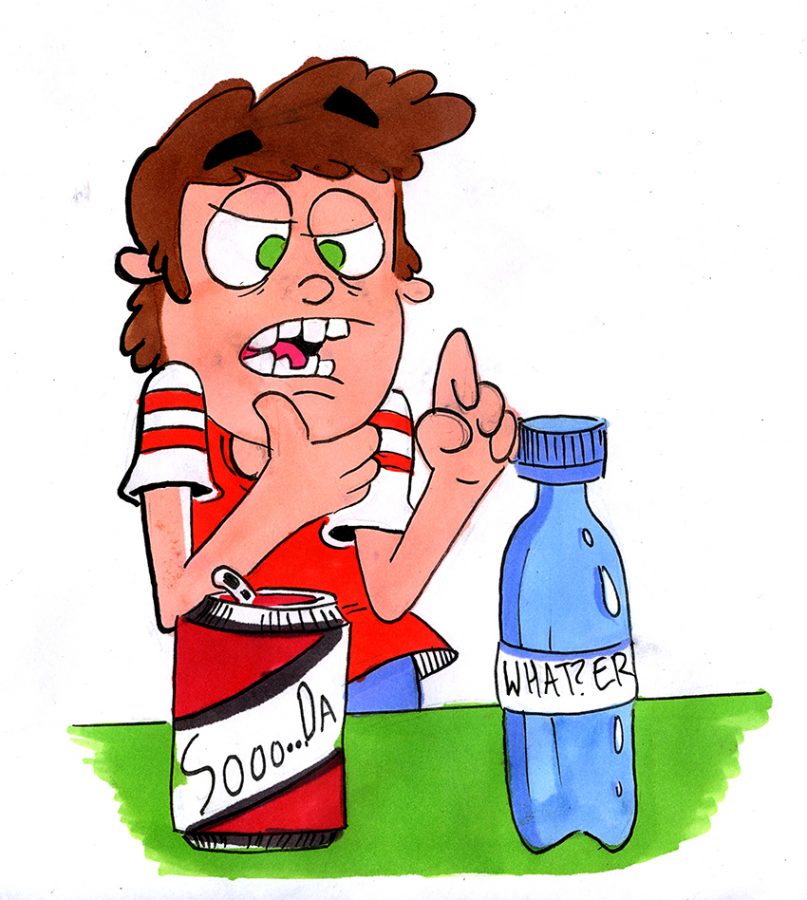UT researcher Jaimie Davis studies how increased sugar consumption affects body fat levels and risk factors in American youth.
According to the CDC, about 16 percent of an American child’s calorie intake comes from added sugars, on average. A 2012 study conducted by Jill Reedy at the National Cancer Institute found that 45 percent of our added sugars come from sugar-sweetened beverages.
Davis, a nutritional sciences associate professor, said her research shows that added sugars and sugar-sweetened beverages are the only two variables directly linked to increased risk for both obesity and Type II diabetes in Hispanic children.
“The practical implication (of our finding) is that if you want to change one thing in your (high-sugar) diet, it’s to decrease added sugar and sugar-sweetened beverages,” Davis said.
Previous research has shown that added sugars and sugar-sweetened beverages contribute to the nation’s obesity and Type II diabetes epidemics. Eliminating one sugar-sweetened beverage a day can have a huge impact on reducing obesity, Davis said.
Another aspect of Davis’ research focuses on the impact of sugar on neural pathways in children.
“We want to know, if kids start drinking sugar early on, will it be harder for them to get off it later on?” Davis said. “We recently did a study called ‘Sugar Brain,’ where (we used) the MRI magnet to measure oxygen in the brain when we gave the kids sugar-sweetened beverages.”
However, Davis said that because the kids were too young, they were unable to sit still for long and potentially interfered with the data, which Davis and her team are still analyzing.
“Preliminary research (is) showing that kids who chronically drink high-sugar (beverages) need more sugar to get the same rewards pathway, similar to a drug problem,” Davis said. “The more we expose children to sugary foods and beverages, the more they need those products later on.”
Market analysts from the website Technavio estimate that the global artificial sweetener market is growing at around five percent per year, but the long-term effects of artificial sweeteners are still unknown, particularly for children, Davis said.
“The majority of the literature suggests that artificially sweetened beverages are still better than sugar-sweetened in regards to diabetes and obesity, but it’s a big mystery box right now, and a lot more research needs to be done,” Davis said.
Davis added that other literature suggests that artificial sugar stimulates the same parts of the brain that sugar does, meaning it may be just as bad for you as regular sugar.
The U.S. government attempted to address the sugar problem when it released a set of dietary guidelines in 2015. The guidelines recommend limiting added sugar consumption to less than 10 percent of the daily calorie intake. Several cities have also implemented a “soda tax” of one cent per ounce of sugar-sweetened beverages.
Davis said that while this tax is so small that people likely won’t change their habits, increasing the tax could have drastic effects.
“Back when tobacco taxation programs started, the taxes were very small and were eventually raised to a level that was uncomfortable,” Davis said. “That was the single most effective strategy for decreasing tobacco use.”
Still, Davis said that the issue of taxation has increased the public’s awareness of the sheer volume of sugar consumption in the U.S.
“If nothing else, just talking about change has contributed to it,” Davis said.















